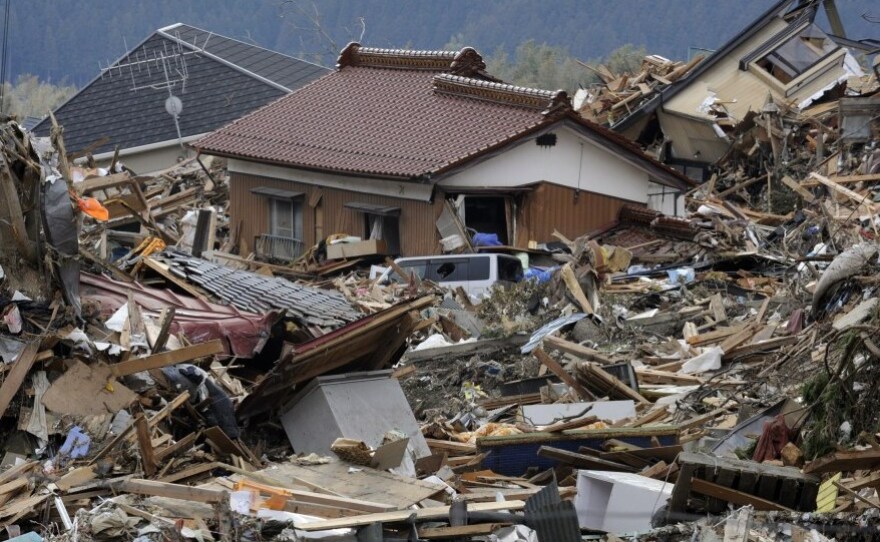It's hard to fathom the extent of the earthquake and tsunami damage in Japan, and losses continue to mount. While most of the property damage won't be covered by insurance because many people and companies didn't have earthquake coverage, the insurance industry's exposure is still huge.
Claims stemming from the earthquake in northern Japan and its aftermath are likely to make this one of the costliest natural disasters ever for the insurance industry.
One widely used estimate puts the insured losses at $15 billion to $35 billion — and that doesn't include losses stemming from the crippled reactors at the Fukushima Dai-ichi nuclear power plant.
"Thirty-five billion would make this earthquake by far the most expensive in global history," says Robert Hartwig, president of the Insurance Information Institute.
Historic Payouts
The current insurance payout record for an earthquake was set in the 1994 Northridge earthquake in California, which produced $22.5 billion in insured losses in 2010 dollars, he says. Hurricane Katrina was the costliest disaster, with total insurance payouts of $41.1 billion, the institute says.
Most of the insurance losses stemming from last week's earthquake will be paid by Japanese companies.
At least 10,000 people are confirmed dead or missing, so there will also be life insurance payouts.
For homeowners who had earthquake coverage, there will be money for residences that were heavily damaged or destroyed. Those claims will be paid by individual carriers, backed up by an industry pool and the government itself.
Business losses will be handled differently — there is no insurance pool or government backup funding. But private insurers are likely to get help from their own insurance policies, known as reinsurance.
"The insurance companies will take on risk and then they'll farm that risk out to reinsurance companies as a mechanism for spreading risk around as much as they can," says Michael Paisan, an analyst for Stifel Financial Corp.
Rising Reinsurance Rates Could Impact Homeowners
And here is where things become more global — many companies writing reinsurance are based in Bermuda, Europe and the U.S.
Paisan says reinsurance rates for earthquake coverage in Asia, and perhaps in places like California, could rise. And the rate hikes could trickle down to ordinary homeowners.
"If the insurance company that's insuring your house has to pay more, then they typically will pass that on to the customer as much as they can," he says.
A Tough Year For Global Insurance
It's been a tough 13 months for the global insurance industry.
Hartwig of the Insurance Information Institute says it started with the earthquake in Chile with its $8 billion in insured losses. Then, were there two major earthquakes in New Zealand, which together produced $15 billion in insured losses, he says. Add to that the $2.4 billion of flood and cyclone losses in Australia and, now, the Japanese earthquake.
But Hartwig says insurance companies are well-funded and can afford to pay the claims. And because of the way reinsurance works, even catastrophe events can be managed.
But beyond all these losses, there's a big looming unknown concerning the Japanese nuclear reactors. What will the liability ultimately be, and who will pay — the power company, the government or others?
Copyright 2022 NPR. To see more, visit https://www.npr.org. 9(MDAzMjM2NDYzMDEyMzc1Njk5NjAxNzY3OQ001))






